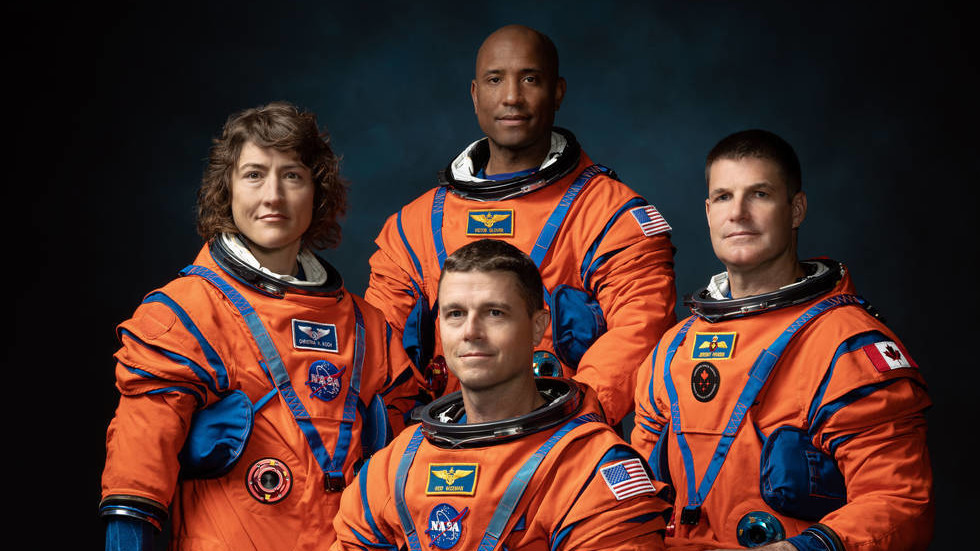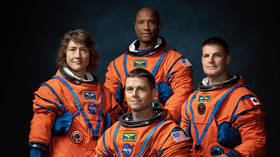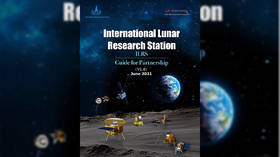
Three Americans and a Canadian will eventually embark on a trip to lunar orbit

Artemis II crew (left to right): NASA’s Christina Hammock Koch, Reid Wiseman (seated), Victor Glover, and Canadian Space Agency astronaut Jeremy Hansen. © NASA
The US space agency announced on Monday the names of the four astronauts that will crew the Artemis II mission. While the ten-day trip around the moon and back is tentatively scheduled for late 2024, the announcement came shortly after the White House unveiled its proposed NASA budget.
The crew will consist of commander Reid Wiseman, pilot Victor Glover, mission specialist Christina Koch – all three from NASA – and Canadian Space Agency (CSA) astronaut Jeremy Hansen, also a mission specialist.
“Among the crew are the first woman, first person of color, and first Canadian on a lunar mission, and all four astronauts will represent the best of humanity as they explore for the benefit of all,” said Vanessa Wyche, director of NASA’s Johnson Space Center in Houston, Texas.
Francois-Philippe Champagne, the minister responsible for the CSA, called Hansen’s participation “not only a defining chapter of our history in space, but also a testament to the friendship and close partnership between our two nations.”

Read more
The Artemis program was conceived during the Trump presidency as a sequel to the 1960s Apollo moon shot, and named after the Greek god’s female twin. Its original goal to put US boots on lunar soil by 2025 has slipped, due to lack of funding from Congress and a change in the White House. The Biden administration changed its focus on diversity and inclusion, but pressed ahead, citing a challenge from China.
After multiple delays, Artemis I launched in December and successfully orbited the moon without a crew. Artemis II is intended to replicate the 1968 Apollo 8 mission, with a ten-day crewed “venture around the moon,” as NASA described it.
Unlike the Apollo program, which focused on getting to the moon, Artemis is more ambitious. NASA wants to set up a space station in lunar orbit, serving as a transfer point for future missions, and establish a base in the southern polar region, where water ice could be used to support human life and produce rocket fuel.
Much of the technology for the program is still being developed. Elon Musk’s SpaceX is building the lander for the Artemis III mission, based on its Starship project. Boeing’s Starliner capsule, which is also intended to be used in the program, has run into delays.




